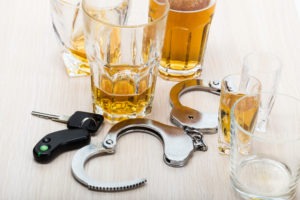
The degree of your felony DWI charge depends on your history of prior convictions and the other specifics of your case, such as if your accident caused a death or serious injury. This is why a DWI lawyer in Houston, TX can be a helpful partner in understanding how the law applies to you after you are arrested for driving while intoxicated.
Factors That Determine How You are Charged for a DWI
According to Texas Penal Code §49.04, a “standard” DWI is not a felony; rather, it is a misdemeanor. A standard DWI is a class B misdemeanor but is elevated to a class A misdemeanor if you have an “alcohol concentration level of 0.15 or more” at the time your blood, breath, or urine is tested.
However, there are many circumstances where a DWI is charged as a felony. Here are some of the situations in which you may be charged with a felony for driving while intoxicated.
DWI With Child Passengers
If you are arrested for driving while intoxicated and you have a minor under 15 years old as a passenger, then you may be charged with a state jail felony. According to Texas Penal Code §12.35, penalties include:
- A sentence of between 180 days and two years in state jail
- A fine of up to $10,000
Charges can be enhanced to a third-degree felony if you have previously been convicted of any felony. This means that instead of serving a maximum of two years for your first DWI, you could be facing up to 10 years in prison if you have previously been convicted of a felony. A criminal defense lawyer in Houston, TX with experience handling prior conviction DWI cases can help you fight for the best results possible.
Prior DWI Convictions
If you were previously convicted of driving while intoxicated, then your charge may be enhanced to a class A misdemeanor. If you have two prior convictions for operating a motor vehicle while intoxicated, then you may be charged with a third-degree felony for a new DWI charge.
Crashes That Result in Death or Serious Injury
If the crash you were involved in results in someone else’s death or serious injury, then you may be charged with a third- or second-degree felony, depending on the specifics of your case. If the person injured or killed in the accident is a first responder and is in actual discharge of an official duty, the charge is enhanced to the next degree. The penalties for third-, second-, and first-degree felonies are as follows:
- Third-degree felony: Between two and 10 years in prison and a fine up to $10,000
- Second-degree felony: Between two and 20 years in prison and a fine up to $10,000
- First-degree felony: Five years to life in prison and a fine up to $10,000
For a legal consultation, call (713) 225-1900
How a Criminal Defense Attorney on Our Team Can Fight for You
At Blass Law, we know all of this can be scary. On paper, the charges you are facing can look overwhelming, and you may be unsure of what to do next or where to turn. We are here for you. We will fight to protect your rights and ensure the best possible outcome after you are charged with any degree of a felony for driving while intoxicated.
You do not have to face DWI charges alone or without taking action. You have the right to hire a lawyer to represent you. We will put in the work to investigate the circumstances surrounding your case so that we can provide the best defense on your behalf. We will also keep you informed at all times so that you understand the process.
Contact Our Attorneys Today
Call Blass Law today to learn more about how we can handle your DWI cases and to learn more about what degree felony your DWI may be. Contact us at (713) 225-1900 to get started.
Call or text (713) 225-1900 or complete a Case Evaluation form


